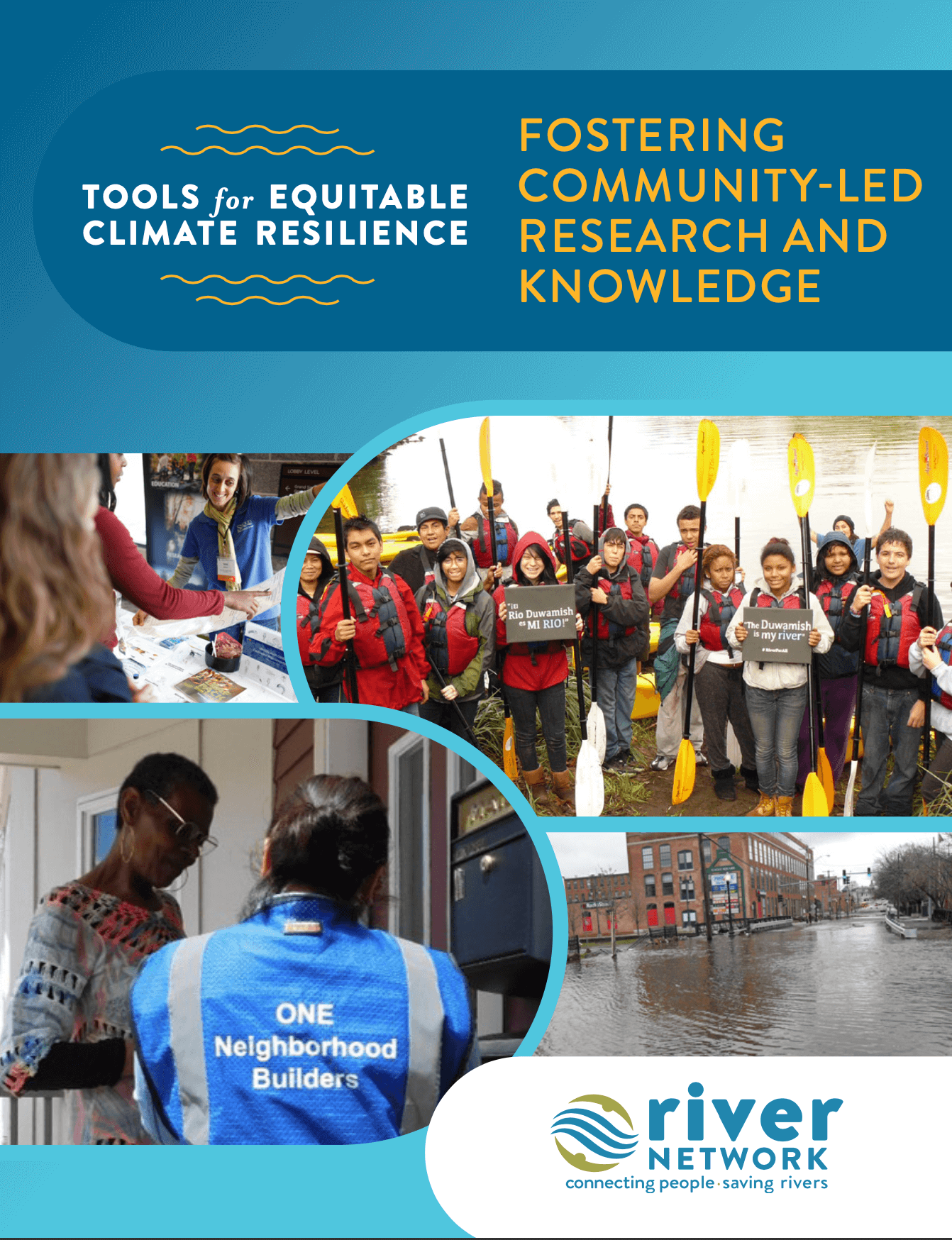Tools for Equitable Climate Resilience: Community-Led Research
 With the support of the Kresge Foundation, River Network embarks on the journey of exploring climate resiliency strategies and equitable engagement of communities in climate resilience work. Here, you’ll find the second of a two-part toolkit presenting Leadership Development and Community-Led Research as essential tools for addressing the diverse risks posed by climate change.
With the support of the Kresge Foundation, River Network embarks on the journey of exploring climate resiliency strategies and equitable engagement of communities in climate resilience work. Here, you’ll find the second of a two-part toolkit presenting Leadership Development and Community-Led Research as essential tools for addressing the diverse risks posed by climate change.
Through this toolkit, River Network provides step-by-step guidance and lessons learned on how to effectively engage with community members to understand climate impacts and to develop equitable climate resilience strategies.
Communities across the United States are increasingly impacted by climate change and face growing problems like property damage, health concerns, and safety issues as a result of flooding and extreme heat. Inadequate wastewater treatment and lack of access to safe and affordable drinking water in many communities compound these threats.
The community-based organizations that River Network supports work to address these impacts on residents and advocate for solutions to make communities safer, healthier, and more resilient. These organizations have repeatedly emphasized that to equitably and successfully carry out climate resilience solutions, it’s imperative to directly engage with community members to deeply understand how these threats directly impact them. Likewise, to formulate solutions that are equitable and truly work— and to get utilities and city officials to prioritize equitable investments in under-invested areas— organizations must directly engage with members of the community when identifying solutions.
Download Fostering Community-Led Research and Knowledge and explore part one of this complete toolkit, on Fostering Community Leadership.
On March 8, 2021, we shared the Community-Led Research Toolkit with the network, heard real-world case studies, and explored the applications to our members’ work. Watch to get acquainted with the toolkit and hear from your peers!
Watch the recording on YouTube here and download additional resources.




